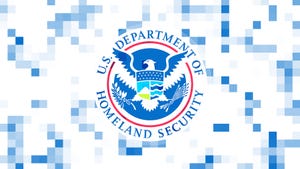US Semiconductor Companies Urge Trump to Hurry Huawei Licenses
The ban is making it more difficult for US firms to compete against foreign rivals that don’t face the same restrictions, according to a joint letter.
September 13, 2019

Jenny Leonard and Ian King (Bloomberg) -- The U.S. semiconductor industry urged President Donald Trump to make good on his promise to ease the ban on sales to China’s Huawei Technologies Co.
“We encourage prompt action to issue approvals for sales that do not implicate national security concerns, particularly where there is foreign availability for competing products,” the Semiconductor Industry Association said in a letter dated Sept. 11 to Commerce Secretary Wilbur Ross, which was seen by Bloomberg News. Intel Corp., Qualcomm Inc. and Texas Instruments Inc. and are among members of the association.
China’s largest technology company has found itself at the center of a trade conflict between Beijing and Washington that’s weighing on the global economy.
After meeting with Chinese President Xi Jinping in late June, Trump said he would loosen restrictions on Huawei export licenses and that Beijing had agreed to buy more U.S. farming goods. But neither side has followed through on those pledges, and the U.S. has since increased tariffs on Chinese goods, sparking retaliation by China.
In July, Trump met with chief executives from major technology companies including Micron Technology Inc. and Alphabet Inc.’s Google who asked for a timely decision on the resumption of sales to Huawei.
Trade Blacklist
American businesses require a special license to supply goods to Huawei after the U.S. added the Chinese company to a trade blacklist in May over national-security concerns.
Huawei is the third-largest buyer globally of U.S. semiconductors, the association said in the letter. Sales to Huawei of “non-sensitive” products ranging from mobile phones to smart-watches “do not implicate national security concerns,” the group said. The ban is making it more difficult for U.S. firms to compete against foreign rivals that don’t face the same restrictions, according to the letter.
Delays in awarding the special licenses could weaken the U.S. semiconductor industry because it will lead to lower profits, forcing some companies to cut research and eroding their dominance in the global market, the association said.
About the Author
You May Also Like









